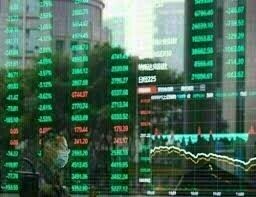China Stocks Waver Amid Trade War Uncertainty
Trading in China’s stock markets was mixed on Thursday, while Hong Kong shares experienced a decline. This occurred as Washington hinted at potentially easing tariffs on Chinese goods but emphasized that any such measures would not be unilateral. This left investors uncertain about the future trajectory of the Sino-US trade conflict.
Earlier in the day, Chinese stocks had reached a two-week peak following comments from the premier regarding market stabilization efforts.
Indices Performance
- The CSI300 Index of blue-chip stocks and the Shanghai Composite Index both reversed initial gains, concluding the morning session with a 0.1% decrease.
- Hong Kong’s Hang Seng Index fell by 1%, primarily dragged down by technology stocks.
Statements from US Treasury Secretary
US Treasury Secretary had previously stated that the current high tariffs between the two nations are unsustainable. The current administration signaled an openness to de-escalating the trade dispute. However, it was also specified that any action would require mutual agreement.
Expert Opinions
According to Bin Shi, head of China equities at UBS Asset Management, a trade war is detrimental to both countries, suggesting that negotiations and an agreement are inevitable. However, the timing and scope of such a resolution remain unclear due to constantly evolving tariff developments and investment implications.
GavekalDragonomics noted that the Chinese President is unlikely to initiate the first move in de-escalation. However, should US advisors propose a way to scale back the tariff war without loss of face, Beijing would likely cooperate.
Sector Performance
Technology stocks were among the biggest losers. Cloud computing, big data, and software companies in China saw significant declines.
Hong Kong’s Hang Seng Tech Index plunged by 2%, influenced by major companies like Alibaba, Meituan, and SMIC.
Bucking the trend, Chinese banking shares experienced gains as the Ministry of Finance began selling long-term treasuries as part of a substantial bank recapitalization initiative.
The recapitalization plan is designed to enable major banks to better manage non-performing loans, promote increased lending activity, and maintain a stable capital market, according to Bin of UBS Asset Management.



Comments (0)
No comments yet. Be the first to comment!
Leave a Comment